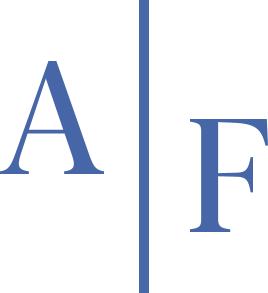 OPMC and OPD License Defense Lawyers Guiding You Through Every Step
OPMC and OPD License Defense Lawyers Guiding You Through Every Step
Our lawyers are available to represent Doctors, Physician’s Assistants, and other healthcare professionals and medical practices throughout New York State. Partner Jordan Fensterman is involved in all aspects of the medical license defense process.
We are ready to serve you with 5 locations throughout NY, including NYC, Manhattan Long Island, Brooklyn, White Plains, Rochester & Albany.
For further information about OPMC and OPD actions, please call 516-328-2300.
OPMC and OPD License Defense FAQs
-
What is the Office of Professional Medical Conduct (“OPMC”)?
OPMC is a branch of the New York State Department of Health that is responsible for investigating and prosecuting complaints brought against physicians and physicians assistants.
-
What is the Office of Professional Discipline (“OPD”)?
OPD is a branch of the New York State Department of Education that is responsible for investigating and prosecuting complaints brought against over fifty licensees in New York.
-
How to Manage OPMC / OPD Investigations
When medical professionals become subjects of investigations or actions with the Office of Professional Medical Conduct (OPMC), it is crucial for them to contact an attorney. When nurses, pharmacists, podiatrists, chiropractors and many other licensees become the subject of investigations or actions with the Office of Professional Discipline (OPD), it is critical for them to contact an attorney.
-
Who can make a complaint to OPMC or OPD?
Short answer: Anyone. Disgruntled patients or clients, family members of patients or clients, insurance companies, disgruntled current or former employees, jealous competitors, hospitals, and state agencies are the most frequent sources of OPMC complaints. OPMC also monitors malpractice settlements and news sources for potential professional misconduct.
-
How many complaints must be made before OPMC or OPD begins an investigation?
One. A single complaint will trigger a surface level analysis of the situation in question. Under the law, the OPMC and OPD are required to look into each and every complaint that is filed.
-
Who are the people at OPMC and OPD who investigate complaints?
OPMC investigators are generally healthcare professionals such as registered nurses or individuals with investigatory backgrounds such as former police officers and insurance investigators. OPD investigators are generally individuals with backgrounds working for other State agencies conducting audits and/or investigating conduct.
-
What To Know About OPMC and OPD Penalties
What penalties may be imposed against a physician or physicians assistant if OPMC determines that he is guilty of professional misconduct? What penalties may be imposed against nurses, dentists, pharmacists and other licensee’s if OPD determines they are guilty of professional misconduct?
For OPMC, in the least severe cases (where the violation is deemed to be "minor" or "technical" in nature), the penalty may be as small as an Administrative Warning (i.e., a non-disciplinary notice which outlines the problems that have been found and recommendations for a remedial course of action). An administrative warning is not discoverable by others and is not published anywhere online.
-
If I am found guilty of professional misconduct by a Hearing Committee in an OPMC or OPD matter, am I out of options at that point?
No. After a Hearing Committee determination is handed down, a practitioner or licensee may appeal to the Administrative Review Board. An unsatisfied practitioner may thereafter appeal that determination to the New York State Courts. However, a practitioner may only appeal to the NYS Courts after all of his administrative remedies have been exhausted.
-
I have been asked by OPMC or OPD to send them a patient chart, but they did not provide a signed consent form. Must I do so?
The short answer to this question is YES. OPMC and OPD are exempt from HIPAA regulations. You must provide OPMC and OPD with a specifically identified patient chart when requested. In fact, it is professional misconduct to refuse to provide a requested chart to OPMC or OPD. However, when OPMC requests a comprehensive review of your patient records, they must provide justification to demonstrate that the comprehensive review is reasonably related to a pending investigation. You may be able to avoid turning over records if the request is a general comprehensive review request.
-
I have been asked by OPMC or OPD to come in for an interview. In OPMC they informed me the interview would be with their investigator and their medical coordinator. Am I obligated to attend the interview?
NO, you are not required to go for an interview with an OPMC or OPD investigator. OPMC is required under the law to allow you the opportunity to be interviewed prior to moving forward with an investigation. In contrast, OPD is not required to offer the licensee an opportunity to interview. In a majority of circumstances, going to the interview is recommended as long as you are fully prepared in advance. However, prior to making this very important decision, consulting with an attorney knowledgeable in the OPMC or OPD process is highly recommended. One wrong statement during any interview can cause tremendous problems for a licensee.
-
Does my malpractice insurance cover the legal fees I may incur during an OPMC or OPD investigation?
Your malpractice insurance carrier may cover some or all of your legal fees you may incur during an OPMC or OPD investigation. Coverage will depend on your individual policy and the nature of the allegations under investigation. Many malpractice insurance policies cover legal fees for administrative proceedings. Coverage is often $25,000 but may be up to $100,000 or more if you have purchased extra coverage.
-
If I am found guilty of committing professional misconduct, will this be publicized?
YES. If you are found guilty of any OPMC / OPD professional misconduct, information will appear in the National Practitioner Data Bank (applicable to doctors only and viewable by only medical professionals), on the New York State Physician Profile (doctors only and viewable by the entire public) and will be posted on the OPMC or OPD websites. The information will also be reported to other licensing agencies, accrediting agencies, employers, Hospitals, HMOs, Specialty Certification Boards, and others. Physicians are also required to report findings of misconduct on their NYS Physician Profile.
Contact Jordan Fensterman for More Information on OPMC and OPD License Defense

